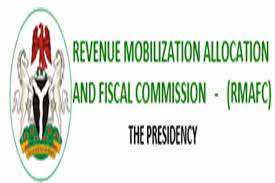
Where is RMAFC on VAT Reform?
By Abdulrauf Aliyu
The ongoing debate over the Value Added Tax (VAT) derivation principle reflects the delicate balancing act required to maintain Nigeria’s federalism. At the heart of this debate lies a critical institutional silence: the absence of the Revenue Mobilization Allocation and Fiscal Commission (RMAFC). Constitutionally mandated to oversee revenue distribution and ensure fairness through scientifically derived indices, the RMAFC should be leading this discourse. Yet, in a moment that calls for clarity and authority, the commission has been strikingly passive, leaving room for political elites to shape the conversation based on competing interests and parochial goals.
This debate is not just about economics; it is about power, equity, and the future of Nigeria’s federal structure. Nigeria’s federalism has historically relied on what the late George Obiozor aptly described as the “politics of precarious balancing.” This principle recognizes that the Nigerian state is not a neutral arbiter but an arena where diverse regional, ethnic, and political interests compete. In this context, the VAT derivation proposal—where states retain a larger share of the revenue they generate—is a seismic shift in the established order, raising fundamental questions about equity and national cohesion.
The wealthier southern states, especially Lagos and Rivers, argue that economic efficiency and fairness demand that they keep a larger share of the VAT they generate. Their argument resonates in an era where the rhetoric of competitive communalism—a concept gaining traction under the Tinubu administration—seeks to decentralize resource control and encourage regional competition. However, this push for efficiency must contend with Nigeria’s political realities. In a country where economic opportunities and revenue-generating capacity are deeply uneven, allowing states to retain more VAT risks marginalizing the poorer, allocation-dependent northern states. This could deepen regional inequalities, fuel resentment, and erode the fragile elite bargains that underpin Nigeria’s unity.
Elite bargains are central to Nigeria’s governance. They represent the unwritten agreements among political elites to distribute power and resources in ways that prevent outright conflict. The current VAT system, though imperfect, reflects one such political settlement—a compromise that ensures redistribution from wealthier to less-developed regions. Any alteration to this settlement must be carefully negotiated among critical stakeholders to avoid upsetting the delicate balance that sustains the federation. This is where the RMAFC’s silence is most troubling.
As the constitutional body responsible for revenue allocation, the RMAFC should be guiding this process, offering data-driven insights and facilitating dialogue among stakeholders. The VAT derivation debate is not merely a technical fiscal issue; it is a test of Nigeria’s political economy and the ability of its institutions to mediate conflicts over resource distribution. By failing to assert its role, the RMAFC risks leaving the debate to be dictated by sectional interests, which could undermine the legitimacy of any eventual outcome.
Furthermore, the Tinubu administration’s emphasis on competitive communalism—a system encouraging states to compete for resources and development—raises critical questions about the future of Nigeria’s federalism. While competition can drive innovation and growth, it must be managed within a framework that ensures inclusivity and fairness. Without such safeguards, competitive communalism risks becoming a zero-sum game, where stronger states thrive at the expense of weaker ones. This is why a robust institutional framework, led by the RMAFC, is essential to navigate these reforms.
The VAT debate also highlights the need for an inclusive political settlement. The northern states, which rely heavily on federal allocations, view the current system as a lifeline. For them, a shift toward VAT derivation threatens not only their economic stability but also their political relevance within the federation. Conversely, southern states argue that the current system penalizes productivity and discourages economic self-reliance. These competing narratives underscore the importance of an elite bargain—a negotiated agreement that balances efficiency with equity, competition with solidarity.
Such a settlement cannot emerge from unilateral decisions or the dominance of sectional interests. It requires dialogue, compromise, and institutional leadership. The RMAFC, with its constitutional mandate and expertise, is uniquely positioned to mediate this process. Its silence undermines not only its institutional credibility but also the broader effort to reform Nigeria’s fiscal federalism in a way that promotes both development and unity.
The VAT derivation debate is a wake-up call. It is a reminder that Nigeria’s federalism, though often criticized, is held together by precarious bargains that cannot be upended without careful negotiation. The RMAFC must rise to the occasion, providing the leadership needed to navigate this contentious issue. Its role is not merely to calculate indices or distribute revenue; it is to ensure that the process of resource allocation reflects a shared commitment to equity, fairness, and national cohesion.
In the end, the VAT debate is about more than revenue; it is about the future of Nigeria’s federation. It is a test of whether the country can balance the demands of economic efficiency with the imperatives of political stability. The RMAFC must step forward to guide this process, ensuring that any reforms are rooted in consensus and a shared vision for Nigeria’s development. Anything less risks not only economic fragmentation but also the erosion of the fragile unity that has sustained the nation.
In the United States, fiscal federalism operates through a system of federal transfers that supports poorer states and ensures national cohesion. States like Mississippi, West Virginia, New Mexico, and Alabama, which have lower levels of economic activity and tax revenue, receive substantial federal grants and transfers. For instance, the federal government provides these states with funding for healthcare, education, infrastructure, and social services through mechanisms like Medicaid and the Supplemental Nutrition Assistance Program (SNAP).
Mississippi, often considered one of the poorest states, relies heavily on federal transfers, with about 40% of its state budget coming from federal funds. Similarly, New Mexico and West Virginia also benefit significantly from federal funding, which helps address regional disparities and support their economic development. This system ensures that states with lower tax revenues and economic capacities are not left behind, reflecting a broader principle of solidarity within the federation.
The United States’ approach to fiscal federalism is not about pure economic rationality but about fostering a sense of shared responsibility. It recognizes that true federalism doesn’t mean equal resources for all but ensuring that poorer or less viable states have the support they need to thrive. In practice, it’s a system that works for everyone by balancing equity and efficiency, highlighting that there is no “true” federalism, only one that works for all.
Abdulrauf Aliyu is a PhD holder

































